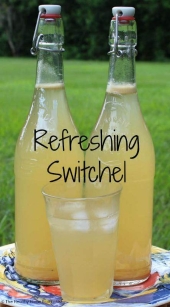Hi Betsy,
I am going to give you a few things to think about.
I always look upstream or at the cause of a health issue. Reflux is a symptom of a deeper issue.
The funny thing about the acid inhibiting drugs is that many folks with reflux actually do not have enough stomach acid. The problem is that it gets up into the esophagus via reflux and even a small amount of acid will burn the esophagus making people think they have excess acid.
There are tests to test for acid in the stomach to find out what the pH of the stomach is. We need adequate acid in the stomach as along with pepsin and lipase it helps kill incoming pathogens and may play a role in preventing bacterial overgrowth in the gastrointestinal tract. Acid facilitates the digestion of protein, and absorption of iron, calcium, magnesium, vitamin B12.
Rather than too much acid in the stomach the problem is more mechanical. Food passes through your esophagus into your stomach, a muscular valve called the lower esophageal sphincter closes after the food goes into the stomach, preventing food or acid from moving back up. Gastroesophageal reflux occurs when the lower esophageal sphincter does not close adequately, allowing acid from your stomach to flow upward (reflux) into your esophagus. This is why it is worse when lying down and really bad if hanging upside down.
Helicobacter pylori (associate with making ulcers) may also be involved with reflux as it causes a low level inflammation that may be responsible for the symptoms of reflux. Acid will decrease the amount of Helicobacter in the stomach, so when you decrease the acid, you increase helicobacter if you have the bug. This will create a cyclical issue. There are many things that decrease H. pylori. They are tough to eradicate with antibiotics, but many herbs will help keep them under control if you use them in diet. This may actually be a better approach as killing them does not necessarily stop the GERD all the time in research, so perhaps just keeping them from causing inflammation is helpful.
Additionally some people have
hiatal hernia that can be fixed with manipulation or surgery. If this is the cause, this has to be remedied. If the person is obese, loosing weight will sometimes cause it to go back into place. If the person is not obese, look to manipulation before surgery.
Some possible causes of GERD or reflux:
Helicobacteri pylori causing inflammation of the stomach that leads to reflux
The person could have a
hiatal hernia which a chiropractor or naturopathic physcian is trained to pull down. People can learn to do it themselves too. There is also surgery for it.
Over eating - try smaller meals
Obesity - if obese loose weight and it often goes away
Food sensitivities - Do an elimination diet to find the foods and if you have food sensitivities, that may be your ticket to getting rid of the reflux
Hot peppers - They can increases reflux, especially if used intermittently - over the long run, they can decrease irritation, but when used once in a while, they can really cause a reaction in people. Used long term they will often decrease GERD and are used as a treatment for some people. They will make it worse the first 3 days to a week though. If the person uses them every day at least once per day, the irritation should be replaced by relief after that 3-7 day period. This may be too much for people with serious heartburn though. It will hurt some folks, so I would not suggest it to everyone though some folks will be helped by it. If there is already damage to the esophagus, in some people this will cause too much irritation during the initial few days. There is a known mechanism that causes this process, but I won't go into that here.
SIBO - Small intestinal bowel overgrowth is associated with reflux in some of the cases
Treatments
For Symptoms:
Water: A study shows that water lowers gastric ph - See the scientific abstract here:
https://www.ncbi.nlm.nih.gov/pubmed/18473176
D-limonene helps decrease the GERD in some people and stop the esophageal irritation
Baking soda: many people use baking soda but just like the drugs it creates an abnormally high Ph and promotes H. pylori if there and decreases digestion and absorption of nutrients
Remove antispasmodic herbs: Herbs that act as antispasmodics may decrease the strength of the lower esophageal sphincter and allow upflow of stomach contents. This would include more common herbs such as peppermint, chamomile, kava,thyme and valerian.
For Treatment:
Small meals if overeating
Remove food Sensitivities and Triggers - foods you are sensitive to should always be removed as they may be the cause of the whole issue in some cases. Additionally consider the following possible items that are often triggers for people: alcohol, caffeine and nicotine products, chocolate, tomatoes, raw onions, vinegar, peppermint fatty foods, garlic, black pepper, carbonated beverages
Support Gut Flora: 1) fermented food, sauerkraut is specifically good - make sure all ferments have live bacteria in them 2) Feed gut flora with mucilaginous fibers which they really like a lot, they like inulin which is in dandelion root (2% in spring root and 40% in fall root), and burdock root which are both healthy and easy to grow.
To decrease H. pylori: Cayenne, Ginger, Garlic, Astaxanthin, Increase your acid to normal if low. Can get hydrogens to make HCL from water, and food, but people do not always have enough chloride with the low salt diets. May need to use a high quality sea salt for choloride. Some people replace the acid with Betaine - HCL and pepsin, but I don't suggest it unless you are working with a practitioner and know you are low in acid. Eat broccoli sprouts - kills H. pylori and decreases stomach inflammation as shown in studies, drink green tea, Support gut flora, use bifiodobacterium in ferments or take as probiotic as it has been shown to compete with H. pylori to stick to the mucous lining of the stomach.
Vitamin D if your levels are less than 50
A dietary supplement containing melatonin (6 mg.), l-tryptophan (200 mg.), vitamin B-6 (25 mg.), folic acid (10 mg.), vitamin B-12 (50 ug), methionine (100 mg.) and betaine (100 mg.) , was found to be superior to the drug omeprazole in the treatment of GERD. 100% of the patients experienced cessation of the GERD symptoms 7 days into the study.

 1
1




 4
4








 3
3




 1
1




 3
3














